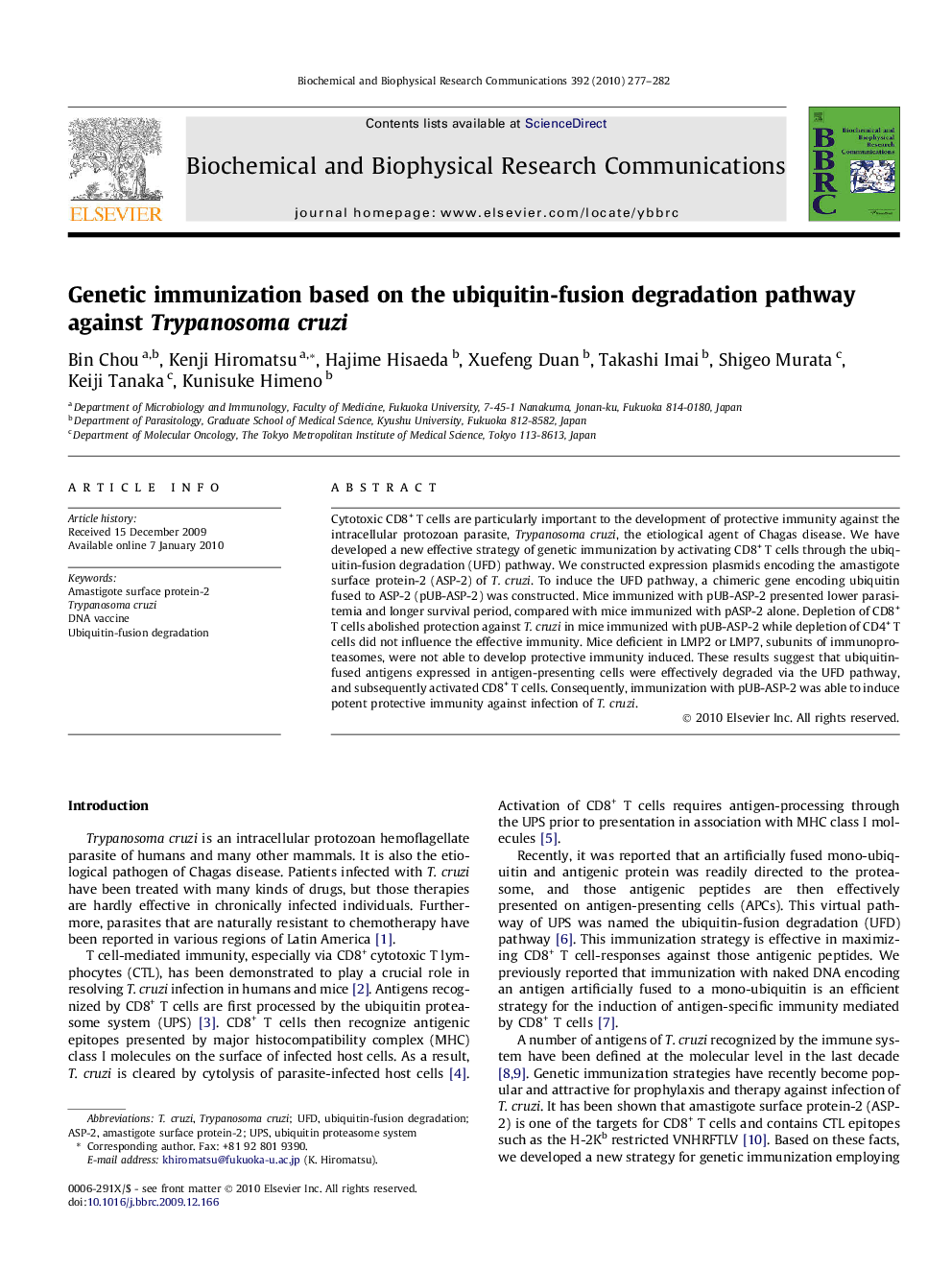| Article ID | Journal | Published Year | Pages | File Type |
|---|---|---|---|---|
| 1932978 | Biochemical and Biophysical Research Communications | 2010 | 6 Pages |
Cytotoxic CD8+ T cells are particularly important to the development of protective immunity against the intracellular protozoan parasite, Trypanosoma cruzi, the etiological agent of Chagas disease. We have developed a new effective strategy of genetic immunization by activating CD8+ T cells through the ubiquitin-fusion degradation (UFD) pathway. We constructed expression plasmids encoding the amastigote surface protein-2 (ASP-2) of T. cruzi. To induce the UFD pathway, a chimeric gene encoding ubiquitin fused to ASP-2 (pUB-ASP-2) was constructed. Mice immunized with pUB-ASP-2 presented lower parasitemia and longer survival period, compared with mice immunized with pASP-2 alone. Depletion of CD8+ T cells abolished protection against T. cruzi in mice immunized with pUB-ASP-2 while depletion of CD4+ T cells did not influence the effective immunity. Mice deficient in LMP2 or LMP7, subunits of immunoproteasomes, were not able to develop protective immunity induced. These results suggest that ubiquitin-fused antigens expressed in antigen-presenting cells were effectively degraded via the UFD pathway, and subsequently activated CD8+ T cells. Consequently, immunization with pUB-ASP-2 was able to induce potent protective immunity against infection of T. cruzi.
